
Report: Kenya, Ethiopia Using Excessive Force Against Somali Civilians
Kenya and Ethiopia have used excessive force against Somali civilians amid efforts to halt cross-border attacks by al-Shabab, according to an internal report by aid agencies working in Somalia.
The report, obtained by VOA's Somali Service, says Kenya has carried out dozens of airstrikes targeting pastoral communities in Somalia's Gedo region since June of 2015. It says Kenyan Wildlife Service personnel pressed into border patrol duty have targeted people with arbitrary arrests and extrajudicial killings.
The report says Ethiopia deployed a paramilitary force along the border to push back pastoralists who had settled in a "grey zone" between Somalia and Ethiopia. It says the force, known as the Liyu Police, committed acts of sexual violence, including a practice called "break and rape” in which women's limbs are fractured.
Kenya Defense Forces spokesman Colonel Jospeh Owuoth denied the accusations, saying Kenya attacks only al-Shabab targets. Ethiopian leaders in the region could not be reached, but the president of the region, Abdi Mohamud Omar, has previously denied all allegations concerning abuses by the Liyu Police.
Eyewitness accounts
But residents of the regions told VOA of incidents that seem to confirm the report's findings.
Mohamud Nur Osman is a community leader in Likoley village, Gedo region. He says Kenyan warplanes recently struck several locations where it had rained and herders had gathered to let their animals graze.
"People have fled from drought-hit areas. They move to where it rains. They [Kenya] bomb where people have been converging,” he said.
He says one strike took place near his village seven days ago. "People who are following the clouds have arrived there. They are civilians, not an army, and they were targeted. No one was killed, but animals died, including camels and goats," he says.
Hassan Mohamed Mukhtar, who fled an area near the Somali-Ethiopian border, told VOA his younger sister, Ruqiya, was arrested and taken to Barey town in Ethiopia by the Liyu Police 15 months ago. They acted because her husband had once accepted $100 to help an al-Shabab operation, he says.
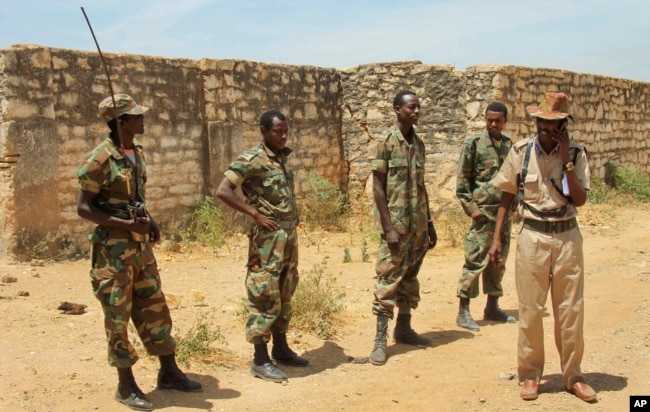
FILE - Ethiopian soldiers patrol in Baidoa, Somalia, Feb. 29, 2012. Both Ethiopia and Kenya have had troops in Somalia for years as part of an African Union mission mandate to fight al-Shabab.
Aid agencies collaborate
The report was written within the past two weeks and its authenticity was confirmed to VOA's Somali service by three humanitarian aid workers working in Somalia. U.N. aid agencies and associated non-governmental organizations, "protection clusters," as they are called, periodically team up to write such reports.
Both Kenya and Ethiopia have stationed troops in Somalia for years as part of an African Union mission mandated to fight al-Shabab. The mission, AMISOM, played a central role in ejecting al-Shabab from Somali cities.
The new report says Kenya and Ethiopia have mobilized non-AMISOM troops to secure their borders. It was these steps that resulted in many actions which are outside of the AMISOM mandate and caused confusion with regards to accountability, it says.
Ethiopia's Liyu Police were formed in 2007 to fight against the rebel group, the Ogaden National Liberation Front, in the ethnic Somali region. Human rights groups have accused them of abuses against civilians in the region.
In Kenya's case, airstrikes targeted water points with the rationale that those resources are used by al-Shabab militants. But the report says "the distinction between military targets and civilians is skewed in the Somali context."
The report also says Kenya has deployed members of its Wildlife Service along the border with Somalia to bolster security. But the report says Somali pastoralists who often move across the frontier, "were now subject to arbitrary arrest, detention, abductions and extrajudicial killings.”
Kenya denials
KDF spokesman Colonel Jospeh Owuoth strongly denied the allegations. "That is not correct, absolutely not true for several reasons,” he said.
"When the KDF and AMSIOM conduct an airstrike it makes sure, almost excessively sure that they have no civilian components in that locations," he said. "We strictly target only the al-Shabab terrorists, at no time have we ever targeted a water point where there are civilians or a building or a location where we suspect there are civilians.”
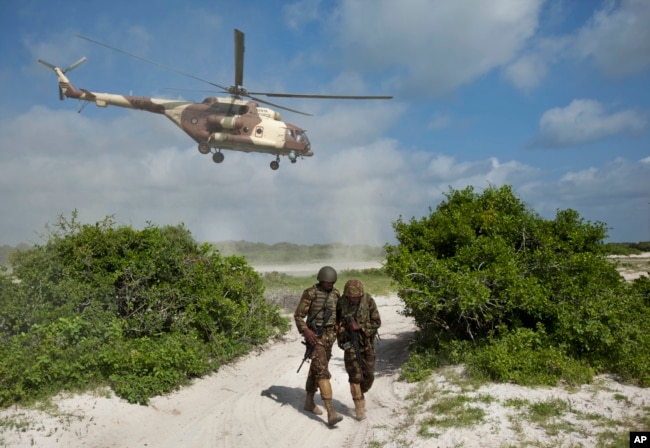
FILE - Two Kenyan army soldiers shield themselves from the downdraft of a Kenyan air force helicopter near the seaside town of Bur Garbo, Somalia, Dec. 14, 2011. A Kenyan military spokesman is categorically denying accusations that the Kenyan air force has been conducting airstrikes against Somali civilians.
"There is a drought in Somalia and you find that most of the civilians go to where there are water holes. You find that that is a big community of animals and people. We cannot bring fire on such a location,” he added.
Owuoth also denied the Kenya Wildlife Service is responsible for violent acts against Somali pastoralists. "KWS has never crossed into Somalia and has not operated on the border. That is not true at all," he said.
The report by the Somalia protection cluster accused Al-Shabab of blockading towns and urban areas controlled by the AMISOM and Somali forces in the Bakool and Bay regions.
It says the blockades prevents aid agencies from delivering humanitarian assistance to people in the drought-stricken region.
"The lack of movement from AS-controlled areas raises the question of whether AS will allow populations under their control or influence to leave and seek humanitarian assistance,” the report says.



 0
0 
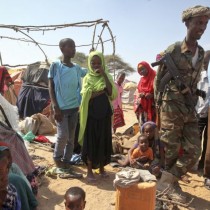

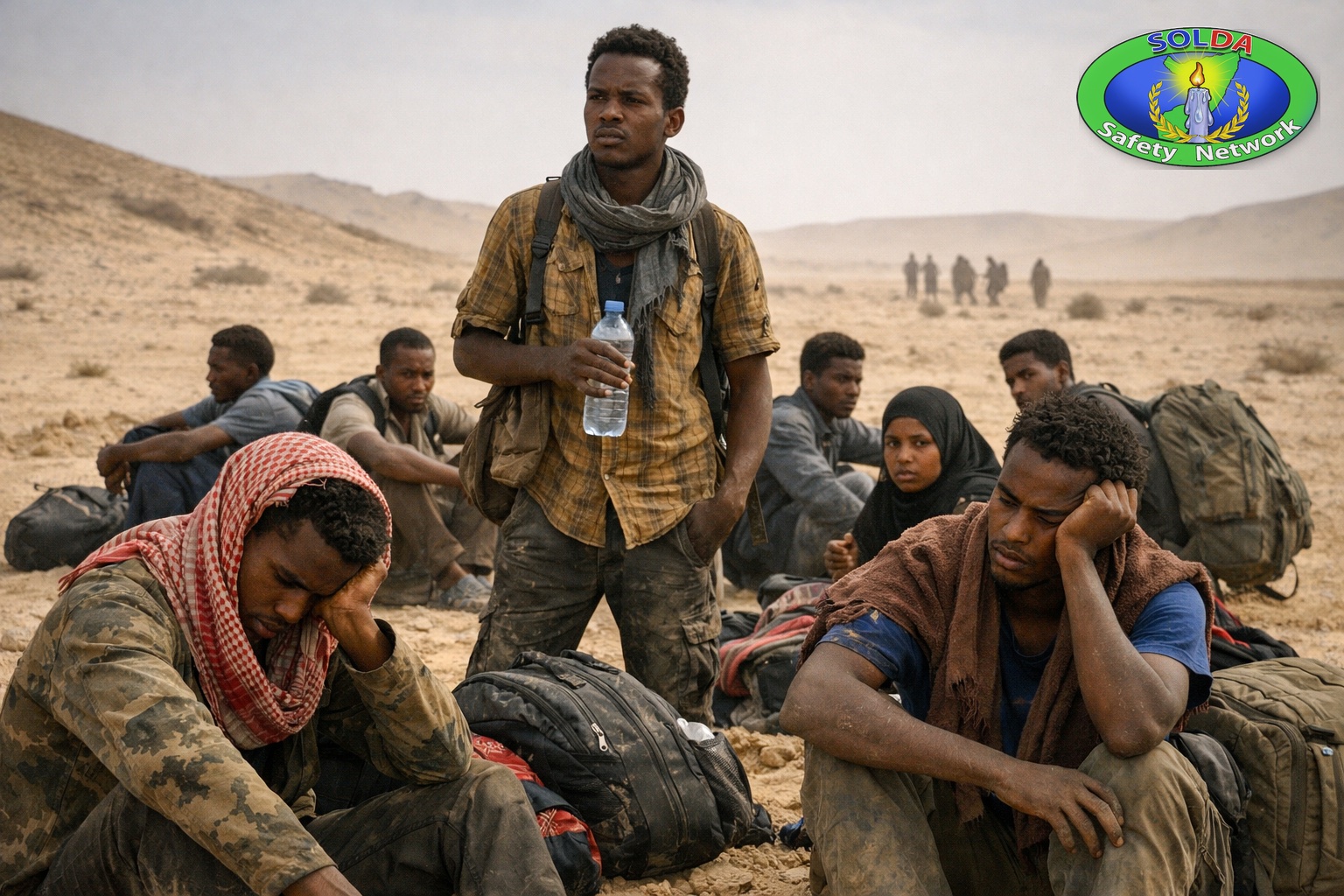

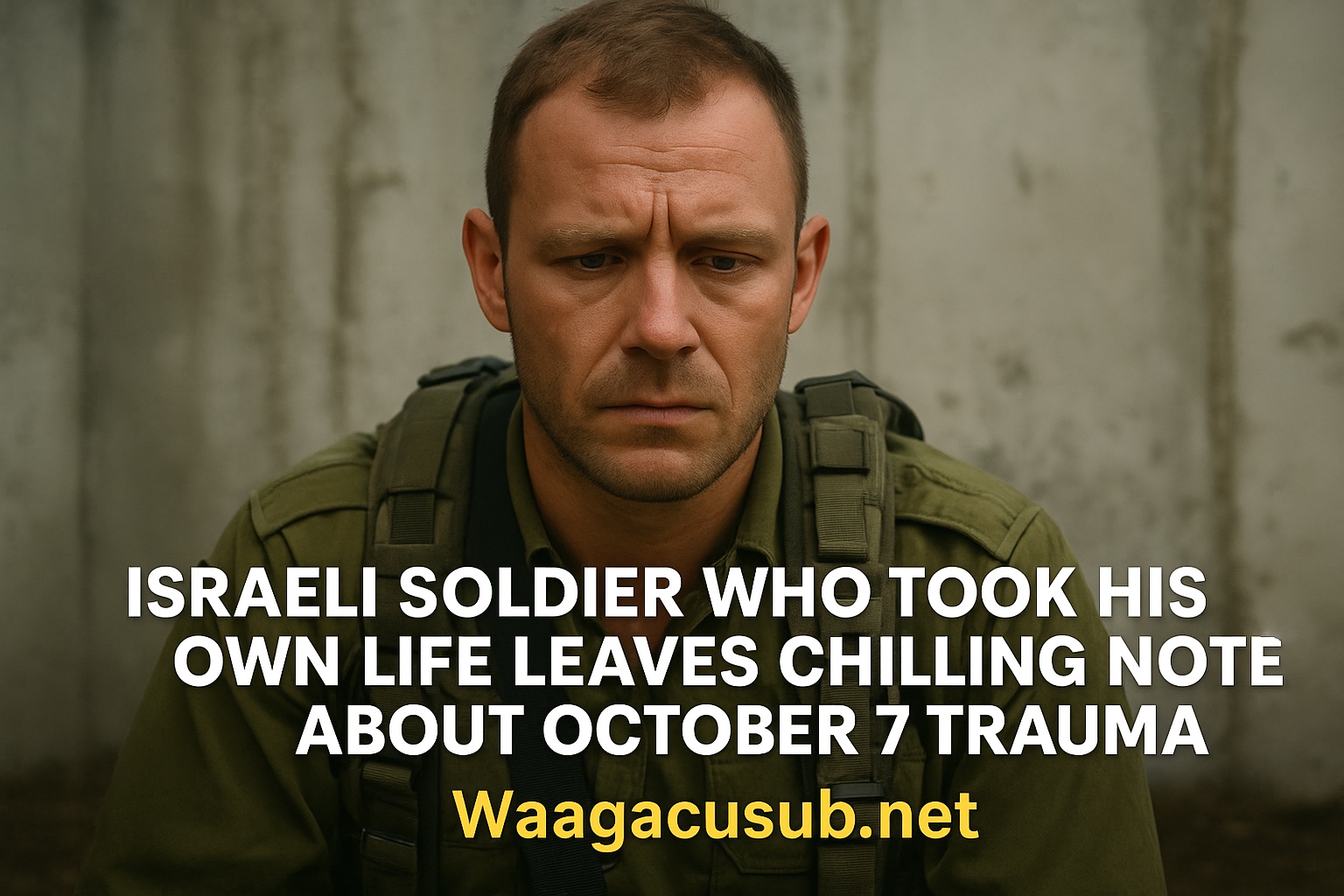
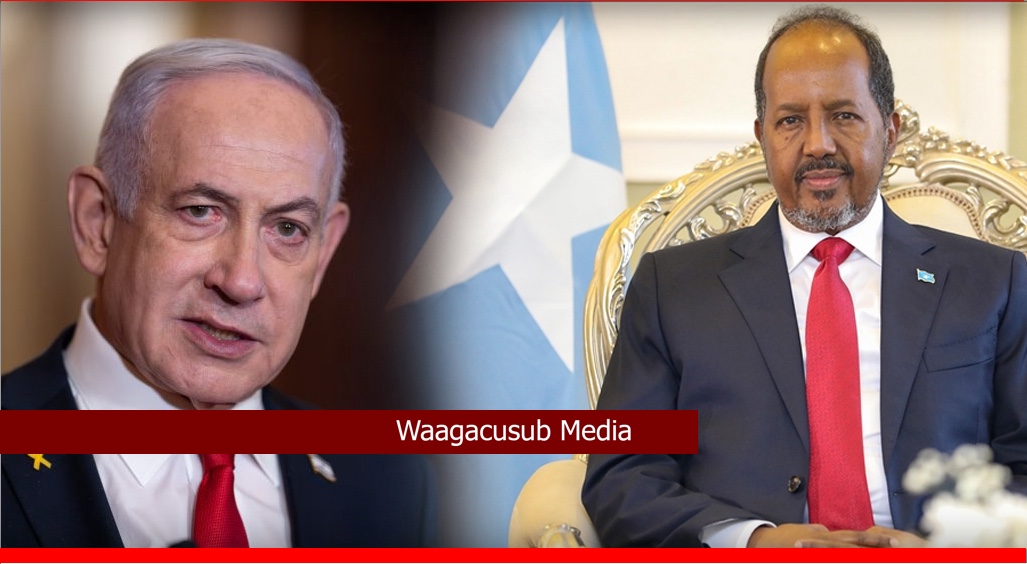



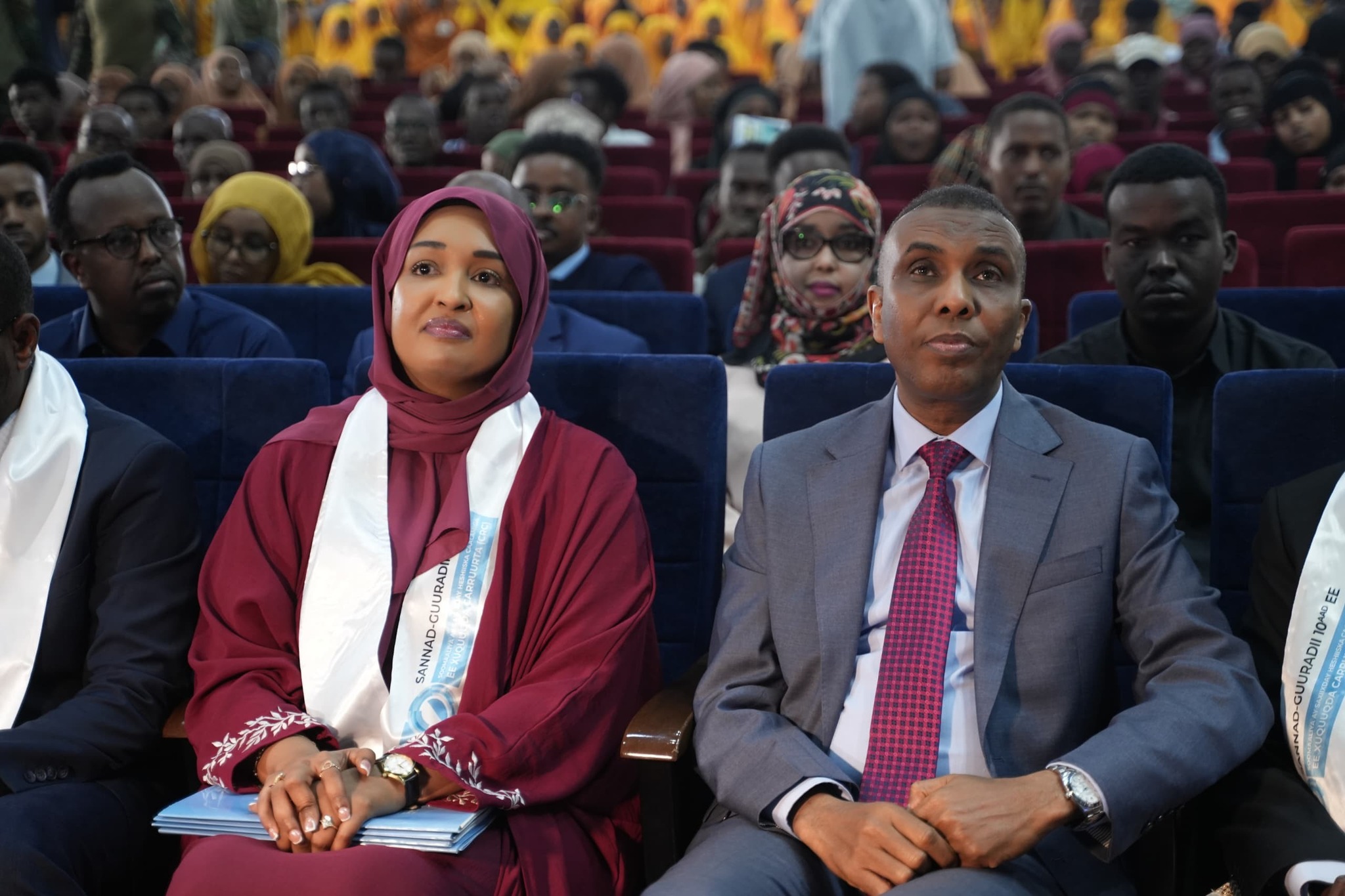



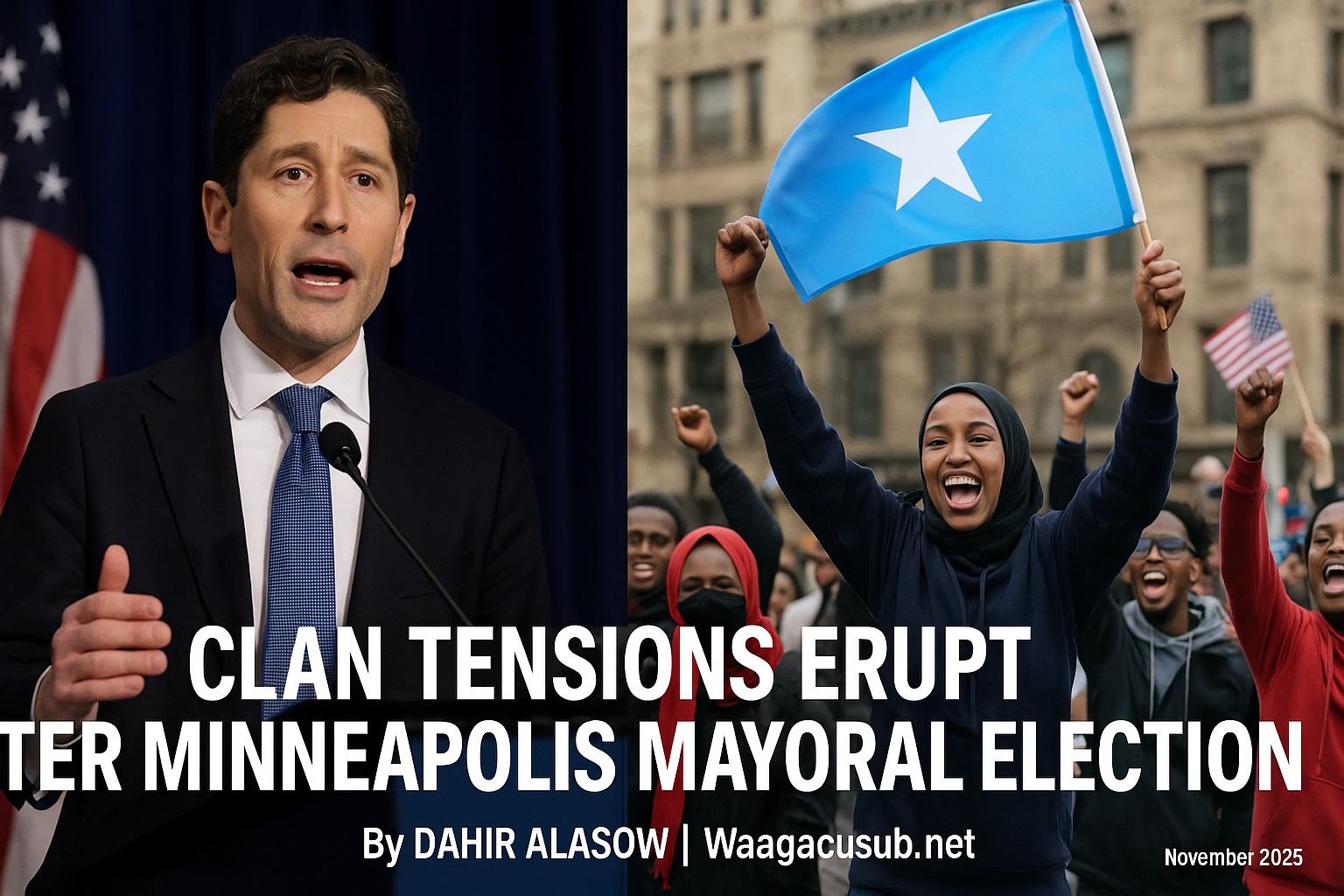
Report: Kenya, Ethiopia Using Excessive Force Against Somali Civilians
But residents of the regions told VOA of incidents that seem to confirm the report's findings.